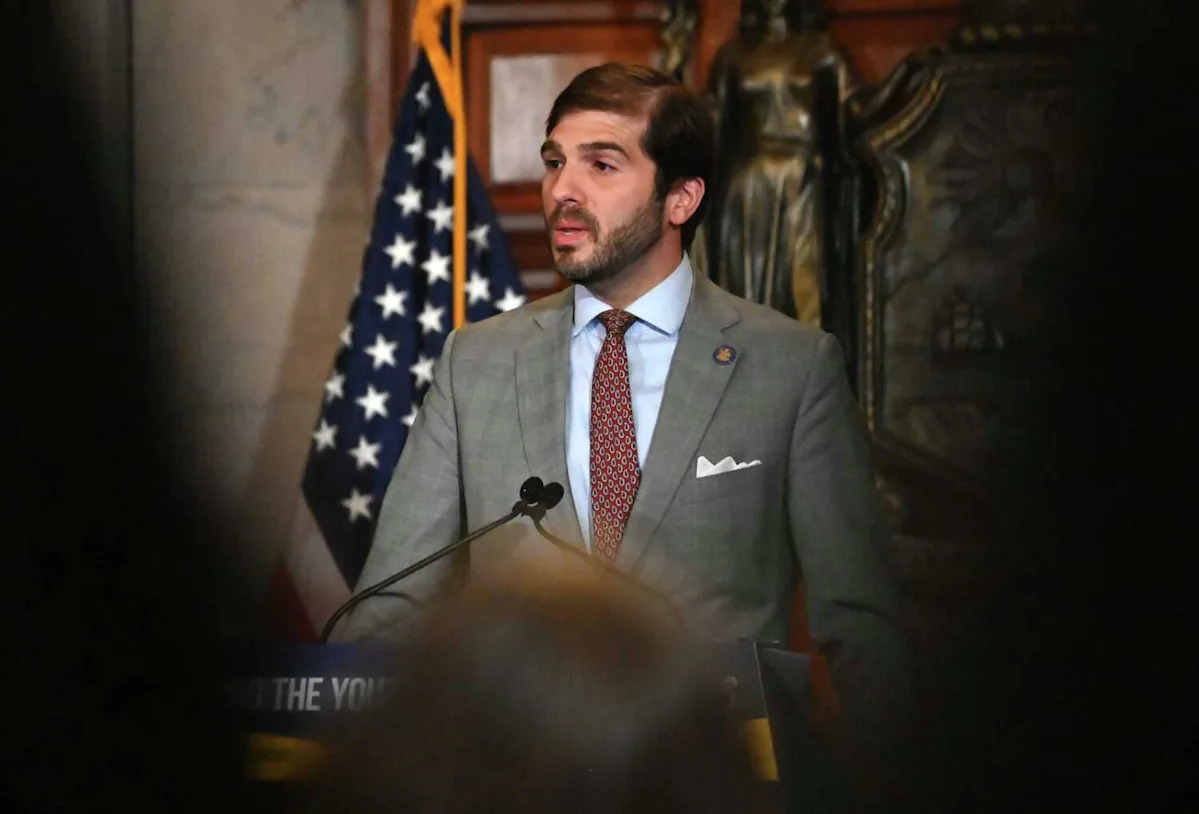ALBANY – Democrats in New York introduced a bill Monday that would prohibit other states, territories or districts from sending their National Guard troops to the Empire State without approval from the governor.
The bill, sponsored by state Sen. Andrew Gounardes, is intended to make it clear that only New York’s governor can approve the presence of another state’s National Guard in the Empire State.
It follows the announcement that several Republican governors were sending hundreds of troops to Washington, D.C., to support President Donald J. Trump’s hard-line crime and immigration policies. Should New York’s bill become law, the state attorney general would have grounds to seek a preliminary injunction from a court.
“It’s deeply sad that we need to take steps to protect New Yorkers from a potential military invasion by fellow Americans, but this is the dark place Trump has brought us to,” Gounardes said.
The bill does not preclude the authority of the U.S. president to call military units into active service in New York. Trump has threatened future military interventions in New York, as he has done in Chicago and Portland.
The National Guard is a state-based military force when not activated for federal service and is under the command of the governor and the president. Some states, most recently Washington, have passed similar laws that restrict outside National Guard from entering their respective borders.
But using National Guard troops for law enforcement and public safety purposes is not unusual.
In December 2024, Gov. Kathy Hochul directed the deployment of 750 National Guard troops into the New York City subway system to augment increased security in response to heightened concerns about crime. The troops were armed with semiautomatic weapons and assisted New York City police officers in searching people’s bags. The governor later deployed an additional 250 National Guard troops on the detail.
“It’s clear to me, as I’ve heard from many people, that the presence of the National Guard has made not just a physical difference, but a psychological difference in how they feel about safety,” Hochul said at the time. “When people see a person in uniform, NYPD, MTA Transit, even our National Guard, they feel more secure.”
Supporters of the bill proposed by Gounardes contend the legislation is a necessary safeguard for state sovereignty and public safety. The National Guard, they note, traditionally operates under the control of governors and plays vital roles in emergencies ranging from natural disasters to national crises such as 9/11 and the coronavirus pandemic.
In recent years, questions have emerged about whether and under what circumstances a state’s National Guard may be deployed across state lines without the host state’s consent.
Proponents of New York’s bill say such deployments raise significant constitutional questions related to the 10th Amendment and the Posse Comitatus Act, which bars any use of the federal armed forces for traditional, nonmilitary law enforcement. California recently used the Posse Comitatus Act to win an early legal victory when Trump deployed National Guard troops to Los Angeles in response to their deployment over the summer.
“New Yorkers don’t need out-of-state troops telling us how to run our cities,” said Susan Lerner, executive director of the watchdog nonpartisan nonprofit Common Cause New York. “Our National Guard should serve the people, not President Trump’s political agenda. We look forward to working with Sen. Gounardes to pass this bill and send a clear message to any state that thinks it can send troops into our communities without our consent – get outta here.”
But a panel of judges from the 9th Circuit U.S. Court of Appeals on Monday issued a ruling allowing the Trump administration to send National Guard troops into Oregon against the wishes of that state’s governor. That ruling lifted a lower court’s judge’s order that had barred the deployment.
The panel ruled 2-1 that the Trump administration’s deployment of National Guard troops in Portland was an appropriate response to protesters who had damaged a federal building and threatened U.S. Immigration and Customs Enforcement officers.
“After considering the record at this preliminary stage, we conclude that it is likely that the president lawfully exercised his statutory authority,” the 9th Circuit panel wrote in the ruling.
This article originally published at New York bill would restrict outside National Guard from entering state.

